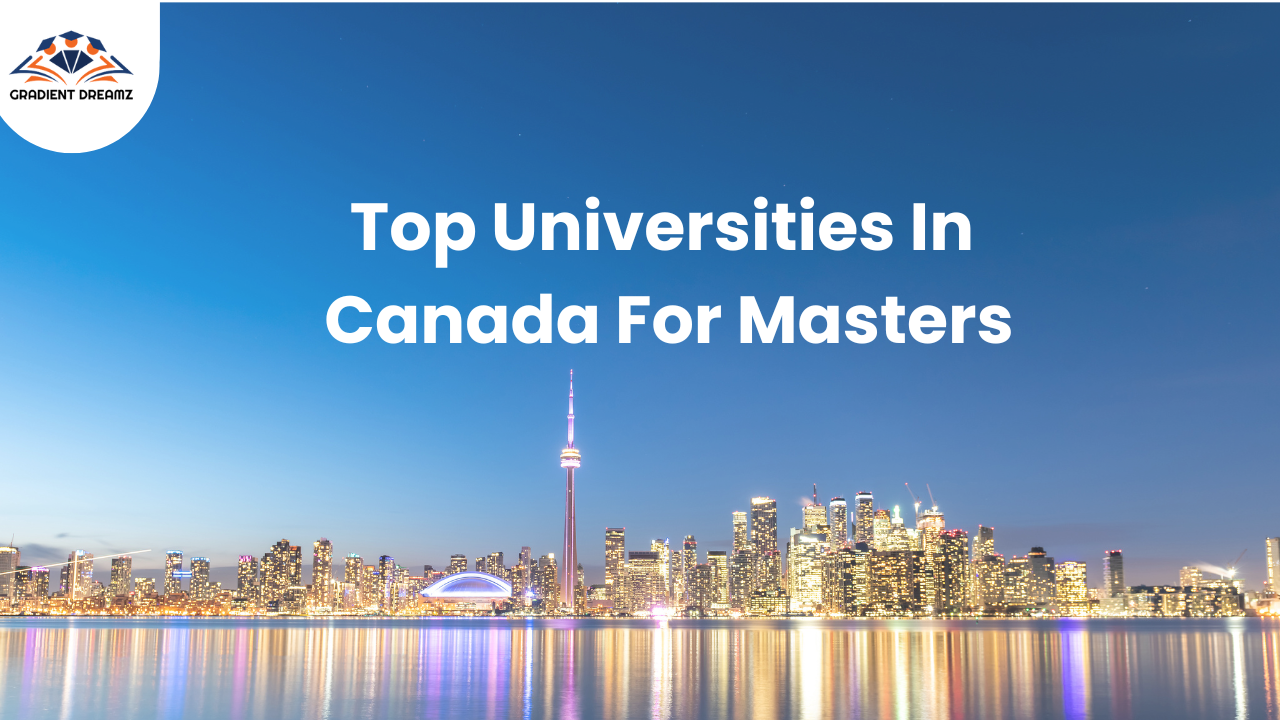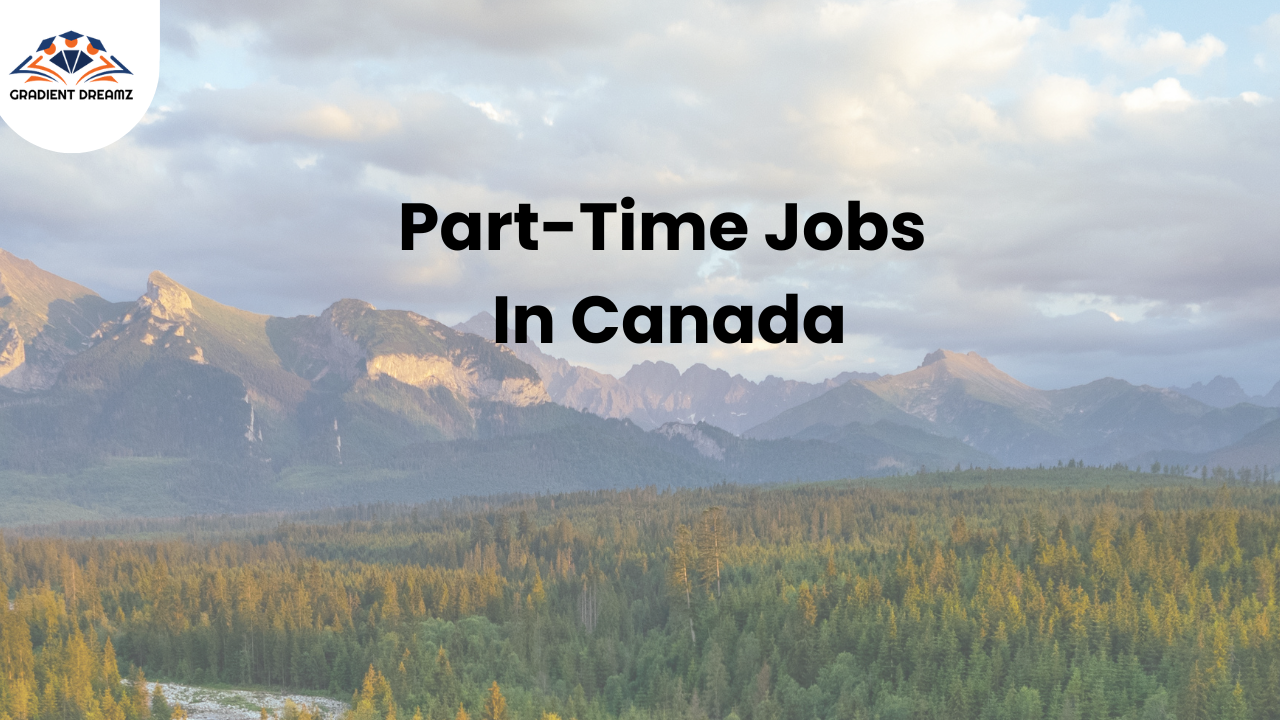Masters In Canada – Top Universities, Courses, Cost, Eligibility and Jobs
Canada is one of the popular destinations for international students pursuing higher education, especially at the Master’s level. One can study at the top universities in Canada for a Master’s. The country offers a world-class education system, a diverse environment, and excellent opportunities for personal and professional growth. In this blog, we’ll explore the top universities in Canada for master’s courses, cost, eligibility, and job prospects.
Why pursue a Master’s in Canada?
Pursuing a Master’s degree in Canada can be an excellent choice for several reasons:
- The universities in Canada are renowned for their academic excellence, cutting-edge research facilities, and highly qualified faculty members.
- Degrees obtained from Canada are widely recognized and respected worldwide, increasing your chances of securing attractive job opportunities.
- It is a diverse and welcoming country, offering an enriching cultural experience and exposure to different perspectives.
- It offers excellent post-graduation work opportunities through the Post-Graduate Work Permit (PGWP) program, allowing you to gain valuable work experience.
- International students with Canadian work experience and a qualifying job offer may be eligible to apply for permanent residency through various immigration programs.
Top universities in Canada for masters
Canada has several prestigious universities offering a wide range of Master’s programs. Here are some of the top universities in Canada for master’s:
1. University of Toronto
2. University of British Columbia
3. McGill University
4. University of Alberta
5. University of Montreal
6. University of Waterloo
7. University of Calgary
8. Queen’s University
9. Western University
10. University of Ottawa
These top universities in Canada for master’s degrees are very popular for their outstanding academic programs, world-class faculty, and exceptional research opportunities. Furthermore, they offer a diverse range of Master’s programs across various disciplines, catering to students’ diverse interests and career aspirations.
Eligibility criteria for Master’s in Canada for Indian students
The eligibility criteria for doing a Master’s in one of the top universities in Canada for masters may vary slightly among universities and programs, but generally, the following requirements apply:
1. Bachelor’s degree: A recognized Bachelor’s degree or equivalent with a minimum cumulative GPA (often around 3 or higher on a 4 scale) from an accredited institution.
2. English language proficiency: Proof of English language proficiency through standardized tests like IELTS, TOEFL, or others, as per the university’s requirements.
3. Entrance exams: Some programs may require specific entrance exams, like GRE, GMAT, or subject-specific exams.
4. Letters of recommendation: Most universities requires two or three letters of recommendation from the professors or employers.
5. Statement of Purpose (SOP) and resume/CV: A well-written SOP highlighting your academic and professional background, goals, and motivation for pursuing the program, also with an updated resume or curriculum vitae.
6. Financial documents: Proof of sufficient funds to pay tuition fees, living expenses, as well as other costs for the duration of the program.
It is better to check the specific requirements of your desired program and university well in advance when considering the top universities in Canada for a master’s.
Also read: Part-Time Jobs In Canada
Cost of studying Master’s in Canada
The cost of pursuing a Master’s degree in one of the top universities in Canada for masters can vary depending on several factors, such as the university, program, and location. Here’s an approximate breakdown of the costs:
Tuition fees:
– For the international students, the average tuition fee for a Master’s program ranges from CAD 17,000 to CAD 35,000 per year at the top universities in Canada for masters.
– Tuition fees can be higher for programs like Business, Engineering, and Medicine.
Living expenses:
– The cost of living in Canada can be different based on the city and lifestyle.
– On average, living expenses (including accommodation, food, transportation, and miscellaneous expenses) can range from CAD 10,000 to CAD 20,000 per year.
Other expenses:
– Books and supplies: CAD 800 to CAD 1,500 per year
– Health insurance: CAD 600 to CAD 800 per year (mandatory for international students)
– Application and visa fees: Approximately CAD 300 to CAD 500
Here’s a table summarizing the approximate total cost for a two-year Master’s program at one of the top universities in Canada for masters for an international student:
Expense |
Cost (CAD) |
| Tuition fees (2 years) | 34,000 – 70,000 |
| Living expenses| | 20,000 – 40,000 |
| Books and supplies | 1,600 – 3,000 |
| Health insurance | 1,200 – 1,600 |
| Application and visa | 300 – 500 |
| Total | 57,100 – 115,100 |
When considering the top universities for masters in Canada, it’s essential to plan and budget carefully, as the cost of living can vary significantly across different cities in Canada.
Scholarships for studying in Top Universities in Canada for Master’s
Pursuing a Master’s degree at one of the top universities in Canada for masters can be financially demanding, but several scholarships and fundings are available to help the financial burden. Here are some popular scholarship options:
1. University scholarships:
Many of the top universities in Canada for masters offer scholarships and financial aid packages to international students based on academic merit, research potential, or financial need.
2. Government scholarships:
The government of Canada offers scholarships for the international students, like the Vanier Canada Graduate Scholarships, Banting Postdoctoral Fellowships, and Canada Graduate Scholarships.
3. Provincial scholarships:
Some provinces in Canada, like Ontario, Alberta, and Quebec, offer scholarships and bursaries for international students attending the top universities in Canada for masters.
4. External scholarships:
Various organizations, foundations, and companies offer scholarships to the international students who are pursuing studies in specific fields or disciplines at the top universities in Canada for masters.
5. Teaching assistantships and research assistantships:
Many of the top universities in Canada for masters offer teaching or research assistantships to Master’s students, providing financial support and valuable experience.
When considering the top universities in Canada for masters, it’s advisable to research and apply for scholarships well in advance, as the application processes can be competitive and time-consuming.
Top Master’s Courses in Canada
Canada offers a huge range of Master’s programs across various disciplines at the top
universities in Canada for masters. Here are some of the top Master’s courses in Canada:
Field |
Popular Master’s Programs |
| Business and Management | MBAMaster of FinanceMaster of MarketingMaster of Human Resources Management |
| Engineering | Master of EngineeringMaster of Electrical EngineeringMaster of Applied ScienceMaster of Computer Science |
| Sciences | Master of Science (MSc) in various disciplines like Biology, Chemistry, Physics, and Environmental Science |
| Social Sciences and Humanities | Master of Arts (MA) in fields like Psychology, Sociology, English Literature, History, and Political Science |
| Health Sciences | Master of NursingMaster of Health AdministrationMaster of Public Health |
| Creative Arts | Master of Fine Arts (MFA)Master of DesignMaster of Architecture |
These are just a few examples, and the specific program offerings may vary among the top master’s universities in Canada.
Jobs after Masters in Canada
Pursuing a Master’s degree at one of the top universities in Canada for masters can open up numerous career opportunities, both within the country and globally. Canada is very popular for the diverse job market, with many industries actively seeking highly skilled and educated professionals. Here are some potential job prospects after completing a Master’s at one of the top universities in Canada for masters:
1. Academic and research positions: Graduates can pursue careers as researchers, professors, or lecturers in universities, colleges, or research institutions.
2. Private sector roles: Various industries, such as technology, finance, consulting, healthcare, and engineering, actively recruit Master’s degree holders from the top universities in Canada for masters for specialized roles.
3. Government and public sector jobs: Graduates from the top universities in Canada with master’s degrees can find opportunities in government agencies, non-profit organizations, and public services sectors like healthcare, education, and social services.
4. Entrepreneurship and start-ups: The Canadian start-up ecosystem is vibrant, and Master’s graduates from the top universities in Canada for masters can leverage their knowledge as well as the skills to start their own businesses or join innovative start-ups.
5. International career opportunities: Degrees from the top universities in Canada for masters are highly respected globally, opening doors to international job opportunities, especially for sectors with global operations or demand.
It’s important to note that job prospects can vary depending on the field of study, industry, and individual qualifications. Gaining relevant work experience through internships, co-op programs, or part-time jobs during the Master’s program at one of the top universities in Canada for masters can significantly enhance employability.
FAQs about pursuing a Master’s degree at the top universities in Canada for masters:
1. Is GRE/GMAT required for admission?
While some programs require GRE/GMAT scores, it’s not mandatory for all Master’s programs at the top universities in Canada for masters. Check specific program requirements.
2. Can I work while studying?
Yes, international students can work on-campus or off-campus for up to 20 hours per week during academic sessions and full-time during breaks.
3. Are part-time/online options available?
Part-time and online Master’s programs are limited at the top universities in Canada for masters, but some universities may offer these options for specific programs.
4. Can I get permanent residency after graduating?
Completing a Master’s in Canada for masters can improve your chances of obtaining permanent residency, especially with Canadian work experience and a qualifying job offer.
5. Can I transfer credits?
Credit transfer policies vary, but some top universities in Canada for masters may allow transfer of credits from relevant previous education. Check with the admissions office.
6. Are there age restrictions?
Generally, there are no specific age restrictions for pursuing a Master’s degree in Canada, but some programs or scholarships may have age-related eligibility criteria.
Pursue excellence in international education. Reach out to us for expert advice.









